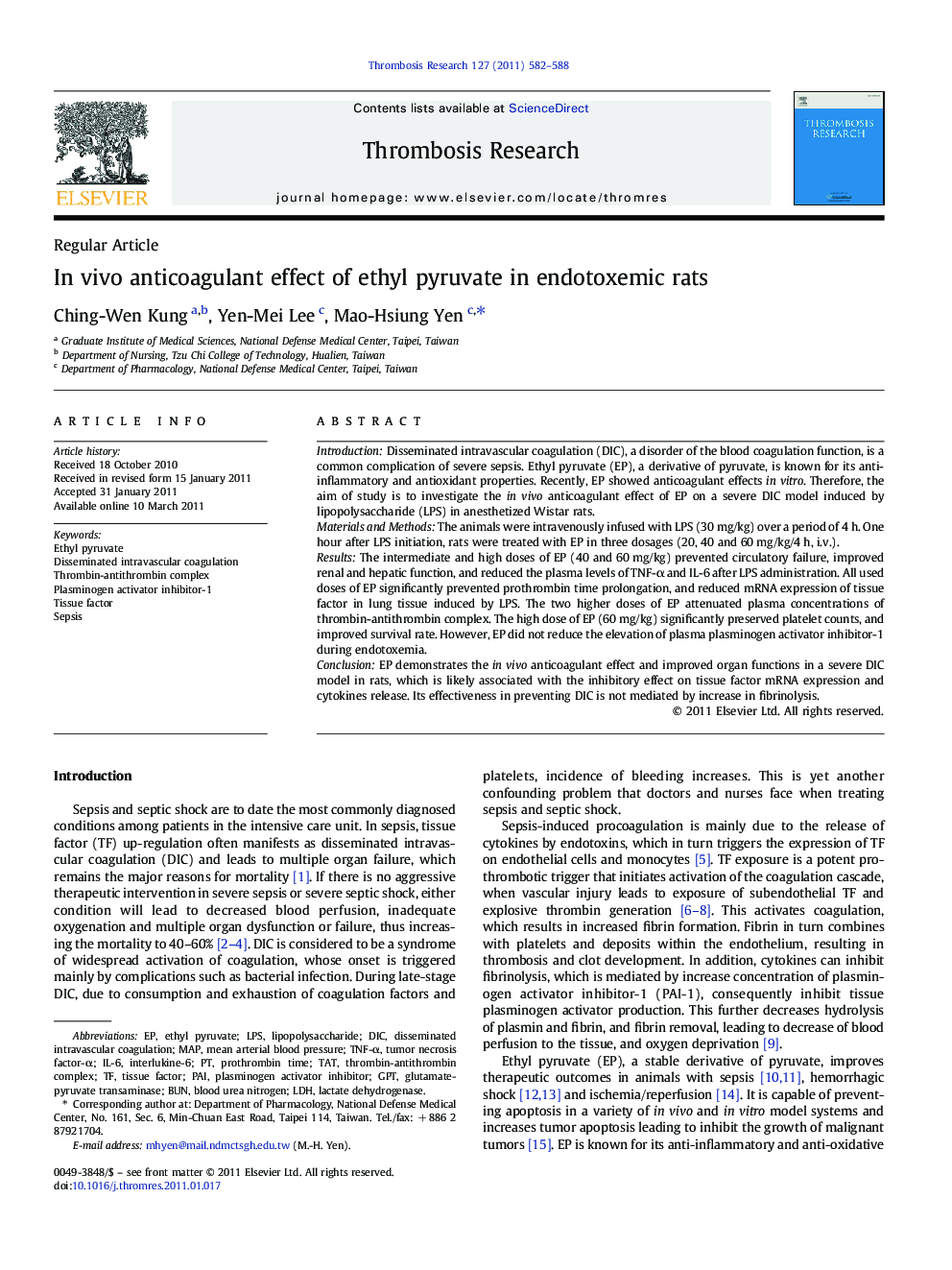| Article ID | Journal | Published Year | Pages | File Type |
|---|---|---|---|---|
| 3028856 | Thrombosis Research | 2011 | 7 Pages |
IntroductionDisseminated intravascular coagulation (DIC), a disorder of the blood coagulation function, is a common complication of severe sepsis. Ethyl pyruvate (EP), a derivative of pyruvate, is known for its anti-inflammatory and antioxidant properties. Recently, EP showed anticoagulant effects in vitro. Therefore, the aim of study is to investigate the in vivo anticoagulant effect of EP on a severe DIC model induced by lipopolysaccharide (LPS) in anesthetized Wistar rats.Materials and MethodsThe animals were intravenously infused with LPS (30 mg/kg) over a period of 4 h. One hour after LPS initiation, rats were treated with EP in three dosages (20, 40 and 60 mg/kg/4 h, i.v.).ResultsThe intermediate and high doses of EP (40 and 60 mg/kg) prevented circulatory failure, improved renal and hepatic function, and reduced the plasma levels of TNF-α and IL-6 after LPS administration. All used doses of EP significantly prevented prothrombin time prolongation, and reduced mRNA expression of tissue factor in lung tissue induced by LPS. The two higher doses of EP attenuated plasma concentrations of thrombin-antithrombin complex. The high dose of EP (60 mg/kg) significantly preserved platelet counts, and improved survival rate. However, EP did not reduce the elevation of plasma plasminogen activator inhibitor-1 during endotoxemia.ConclusionEP demonstrates the in vivo anticoagulant effect and improved organ functions in a severe DIC model in rats, which is likely associated with the inhibitory effect on tissue factor mRNA expression and cytokines release. Its effectiveness in preventing DIC is not mediated by increase in fibrinolysis.
